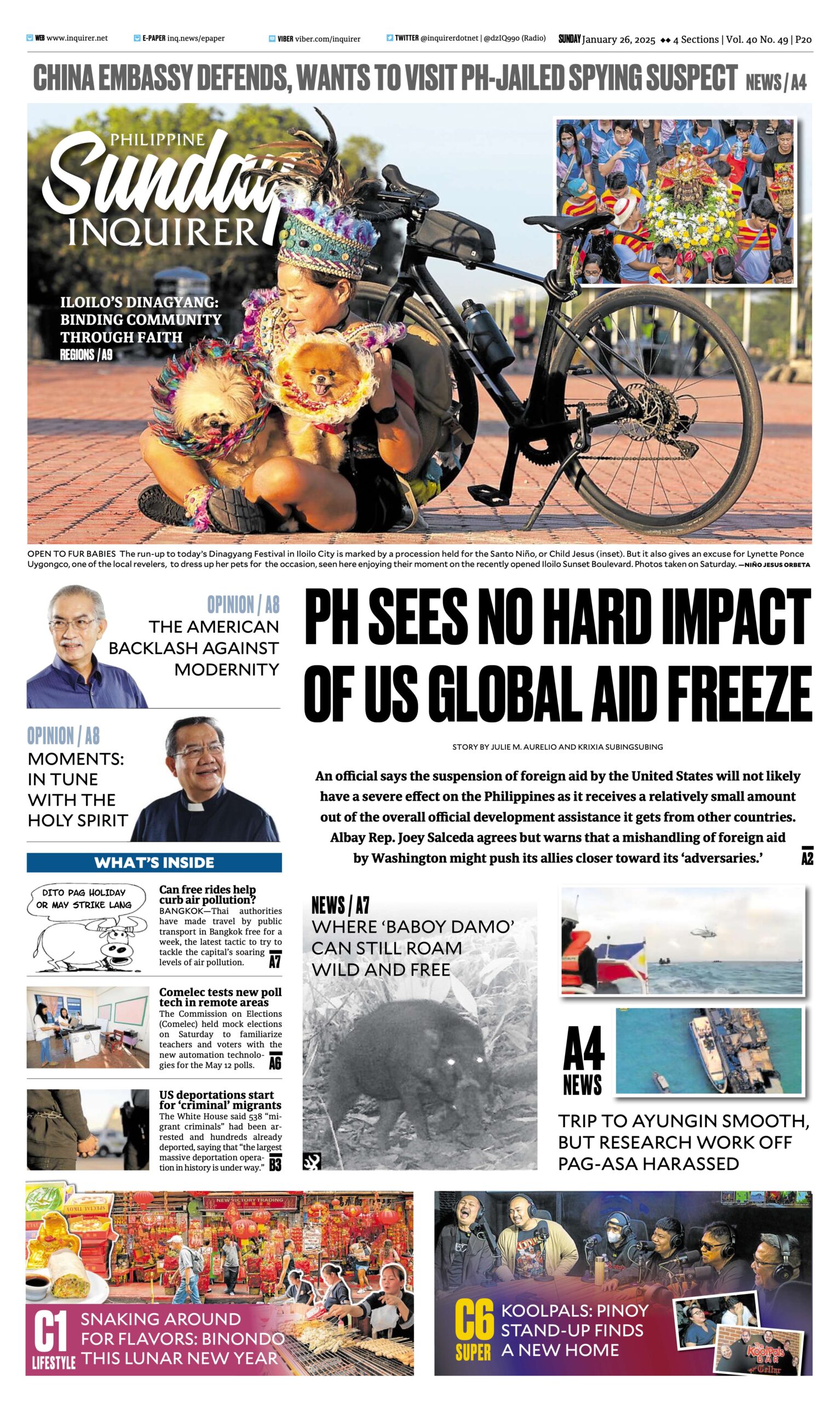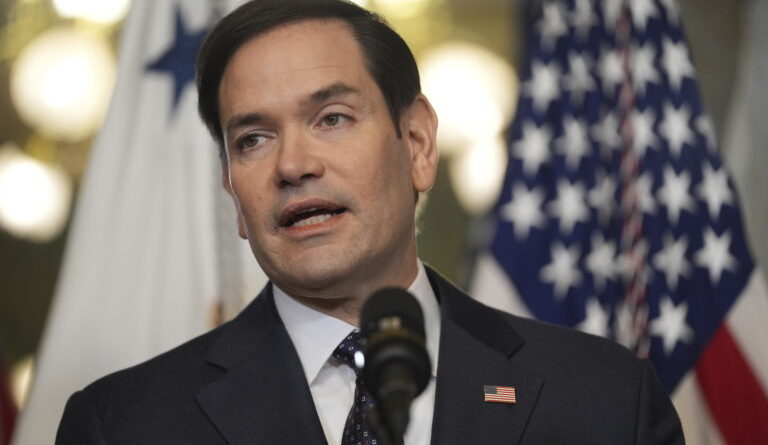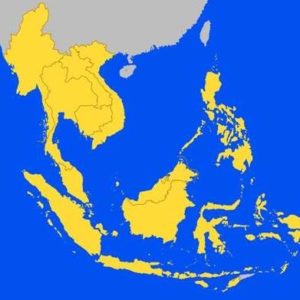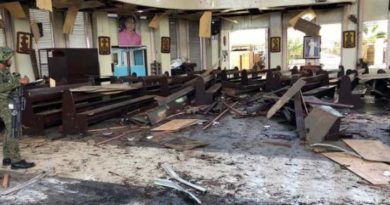ASEANEWS HEADLINE-WORLD GEOPOLITICS | MANILA: PH sees no hard impact of US global aid freeze
Secretary of State Marco Rubio —AP Photo/Evan Vucci
WATCH VIDEO: https://www.youtube.com/watch?v=uXOsJotEiL4
Edca sites ‘unlikely’ to be affected by US aid freeze, says DFA
.
.
.

MANILA, Philippines — A senior foreign affairs official on Saturday said the suspension of US foreign aid globally was unlikely to severely affect the Philippines even as Malacañang tried to grasp the implications of the move ordered by US President Donald Trump.
At a press forum on Saturday, Foreign Undersecretary Eduardo Jose de Vega noted that the Philippines had many economic partners like the United States.
“And while the US involvement in our economy as a trading partner is still very high, I think even with the freeze, it’s not like it’s going to severely affect us because the aid packages from the US are small right now,” he said.
READ: US-PH Edca: A decade of defense
De Vega stressed, however, the importance of “people-to-people ties and certainly the Mutual Defense Treaty” between the two countries.
The Philippines is a longtime ally of the United States in the Indo-Pacific, where China’s aggressive actions in the South China Sea are seen as a threat to peace and security in the region.
.
WATCH VIDEO: https://www.youtube.com/watch?v=VEZYRqKrhOg
Secretary of State Rubio orders U.S. to immediately stop almost all foreign aid
.
|
|
DFA monitoring
Presidential Communications Office Secretary Cesar Chavez told the Inquirer that the Department of Foreign Affairs (DFA) was closely monitoring reports on the freeze order as it continued to work with “partners in the US Department of State and the US government to determine how this will affect the Philippines.”
De Vega told the news forum that Manila “will use diplomatic channels and back-channeling” with Washington and that the Philippine Ambassador to the United States, Jose Manuel Romualdez, was “very active” in this.
|
|
.
Rubio memo
The US aid freeze order was sent out in an internal memo on Friday by Secretary of State Marco Rubio days after Trump took office vowing an “America First” policy of tightly restricting assistance overseas.
It paused virtually all foreign aid, except for emergency food programs and military aid to Israel and Egypt.
“No new funds shall be obligated for new awards or extensions of existing awards until each proposed new award or extension has been reviewed and approved,” said the memo seen by news organizations in Washington.
The sweeping order appears to affect everything from development assistance to military aid—including to Ukraine, which received billions of dollars in weapons under Trump’s predecessor Joe Biden as it tries to repel a Russian invasion.
Other states identified for military financing in 2025 include Ukraine, Georgia, Estonia, Latvia, Lithuania, Taiwan, Indonesia, the Philippines, Thailand, Vietnam, Djibouti, Colombia, Panama, Ecuador and Jordan, according to a request to Congress from the Biden administration.
|
|
.
2023 figures
The directive was delivered in a cable sent to US embassies around the world and will affect US-funded programs in support of health, education, development, job training, anticorruption, security assistance and other aid efforts.
In 2023, the United States Agency for International Development (USAID) provided $198.2 million in disbursed aid to the Philippines, according to ForeignAssistance.gov, a US government website.
The funds supported various development initiatives, with the largest share going to general environmental protection ($32.59 million), followed by basic health ($25.52 million), governance and civil society ($24.98 million); and operating expenses ($22.1 million).
The other sectors that received assistance were maternal and child health, family planning ($19.27 million), emergency response ($12.59), basic education ($18.23 million), and energy ($7.44 million).
|
|
.
Turn to other partners
USAID’s assistance to the Philippines was at least $144 million in 2024, according to an initial report.
While Japan remains the largest ODA provider, the report mentioned that USAID was also a significant contributor with grants totaling $623.75 million.
Manila Rep. Joel Chua, chair of the committee on good government and accountability, said that “in our own national interests, we should look more to the European Union, the Middle East, Japan, South Korea and Australia for foreign aid.”
“The America First policy the US now has more likely means the US will retreat from the rest of the world,” Chua said, while also cautioning against leaning toward Russian aid “unless Russia ends its war with Ukraine.”
Albay Rep. Joey Salceda, an economist, warned that if the United States neglected its relationship with the Philippines, the country might have no other choice but to “balance that out with China.”
“We have sentimental ties with the US. We want them to succeed as they look after America first,” he said. “We have territorial issues with China, but between the US and China, only the US actually invaded our main islands.”
“So, we are not blind to the fact that they will look after their interest first. We just want them to be fair, and I think they will be. Because the farther the US goes from us, the closer they force us to their adversaries,” Salceda said.
|
|
.
‘Low single digits’
Nevertheless, from an economic perspective, he said Trump’s order should not be an issue as the United States has not been a major source of aid for the Philippines for a while now, citing data from the National Economic and Development Authority (Neda) showing US aid in the “low single digits” in terms of percent share.
“Their aid is their decision to make. Nothing needs to be done on our end,” Salceda said. “Our most important foreign relationships are, in this order, our relationship with Japan, our Asean community, and our strategic multilateralism.” Asean is the 10-member Association of Southeast Asian Nations.
According to the latest available data from Neda, the official development assistance (ODA) received by the Philippines from foreign governments and institutions stood at $37.29 billion as of 2023, up by 15 percent from the previous year.
That amount consisted of concessional loans worth $35.07 billion and $2.22 billion in grants.
|
|
.
Biggest share
In 2023, Japan held the largest share of ODA in the country at 32 percent, followed by Asian Development Bank and World Bank.
By sector, 54.59 percent of the ODA went to infrastructure. Governance and institution development received the second largest share (18.4 percent), followed by social reform and community development (15 percent) and agriculture, agrarian reform and natural resources (11.6 percent). The remaining 0.79 percent went to industry, trade and tourism.
The US provides more foreign aid globally than any other country, budgeting about $60 billion in 2023, or about 1 percent of the US budget.
Rubio’s memo called for an internal review of all foreign assistance within 85 days.
In justifying the freeze, Rubio—who as a senator was a supporter of development assistance—wrote that it was impossible for the new administration to assess whether existing foreign aid commitments “are not duplicated, are effective and are consistent with President Trump’s foreign policy.”
|
|
.
Abandonment, ‘lunacy’
Antipoverty group Oxfam said that Trump was abandoning a long-standing consensus in the United States for foreign assistance.
“Humanitarian and development assistance accounts for only around 1 percent of the federal budget; it saves lives, fights diseases, educates millions of children and reduces poverty,” Oxfam America president Abby Maxman said in a statement.
“Suspending and ultimately cutting many of these programs could have life or death consequences for countless children and families who are living through crisis,” she said.
“This is lunacy,” said Jeremy Konyndyk, a former USAID official who is now president of Refugees International. “This will kill people. I mean, if implemented as written in that cable … a lot of people will die.” —with reports from Ian Nicolas Cigaral, Agence France-Presse, AP, and Inquirer Research
|
|




 Memento Maxima Digital Marketing
Memento Maxima Digital Marketing






